The U.S. Government Is Using Fear to Consolidate Power and It’s Working
Rather than diminish the fear that inspires humans to act in irrational violent ways, philosophy professor Peter Ludlow writes that so-called democracies are using it as a weapon to "control the rabble."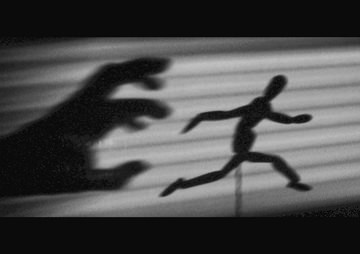 stuant63 (CC BY-NC 2.0)
stuant63 (CC BY-NC 2.0)
Rather than diminish the fear that inspires humans to act in irrational violent ways, philosophy professor Peter Ludlow writes that so-called democracies are using it as a weapon to “control the rabble.” Events such as 9/11 and other terrorist acts have been framed and used constantly as a justification of an ever-growing surveillance state that is backed by our political leaders. After a distressing, must-read litany of the many ways in which American citizens have forfeited their liberties out of fear, Ludlow offers some hope. “Yet ultimately we are not powerless,” he writes. “We can resist the impulse to be afraid.”
The New York Times:
…let there be no mistake about the consolidation of power in the form of the new surveillance state. Recent revelations by Edward Snowden have shown an unprecedented program of surveillance both worldwide and on the American population. Even Erik Prince, the founder of the private military contractor Blackwater Worldwide thinks the security state has gone too far:
America is way too quick to trade freedom for the illusion of security. Whether it’s allowing the N.S.A. to go way too far in what it intercepts of our personal data, to our government monitoring of everything domestically and spending way more than we should. I don’t know if I want to live in a country where lone wolf and random terror attacks are impossible ‘cause that country would look more like North Korea than America.
The widespread outrage over the new surveillance state has been great enough that President Obama announced on Friday that he would scale back some of its programs, but he remained strident in his overall support for aggressive surveillance.
The interesting thing about the security measures that are taken today is that they provide, as Prince puts it, the “illusion of security”; another way to put it is that they provide “security theater.” Or perhaps it is actually a theater of fear.
During the George W. Bush administration we were treated to the color-coded terror threat meter. It was presented as a way to keep us secure, but constantly wavering between orange and red, it was arguably a device to remind us to be fearful. Similarly for the elaborate Transportation Security Administration screenings at airports. Security experts are clear that these procedures are not making us safe, and that they are simply theater. The only question is whether the theater is supposed to make us feel safer or whether it is actually intended to remind us that we are somehow in danger. The security expert Bruce Schneier suggests it is the latter:
By sowing mistrust, by stripping us of our privacy — and in many cases our dignity — by taking away our rights, by subjecting us to arbitrary and irrational rules, and by constantly reminding us that this is the only thing between us and death by the hands of terrorists, the T.S.A. and its ilk are sowing fear. And by doing so, they are playing directly into the terrorists’ hands.
The goal of terrorism is not to crash planes, or even to kill people; the goal of terrorism is to cause terror. … But terrorists can only do so much. They cannot take away our freedoms. They cannot reduce our liberties. They cannot, by themselves, cause that much terror. It’s our reaction to terrorism that determines whether or not their actions are ultimately successful. That we allow governments to do these things to us — to effectively do the terrorists’ job for them — is the greatest harm of all.
As the Norwegian philosopher Lars Svendsen notes in his book “A Philosophy of Fear,” Hobbes already anticipated the need for the sovereign to manipulate our fears. The state, Svendsen writes, “has to convince the people that certain things should be feared rather than others, since the people will not, just like that, fear what is appropriate from the point of view of the state. Hobbes points out that this can necessitate a certain amount of staging by the state, which magnifies certain phenomena and diminishes others.”
One way in which our fears can be manipulated by the government is to lead us to fear the lesser danger. Schneier provides a simple example of this: 9/11 caused people to irrationally fear air travel and led them to the much more dangerous route of traveling in automobiles….
—Posted by Natasha Hakimi
Your support matters…Independent journalism is under threat and overshadowed by heavily funded mainstream media.
You can help level the playing field. Become a member.
Your tax-deductible contribution keeps us digging beneath the headlines to give you thought-provoking, investigative reporting and analysis that unearths what's really happening- without compromise.
Give today to support our courageous, independent journalists.
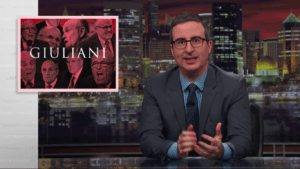
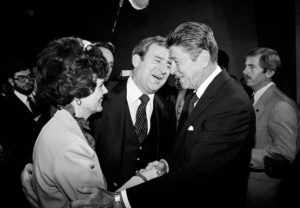
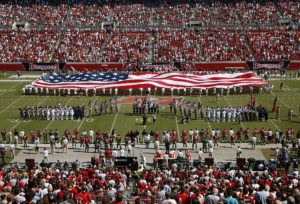
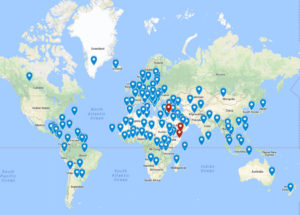
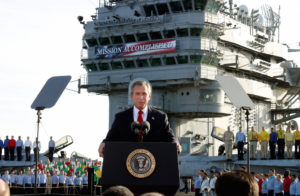
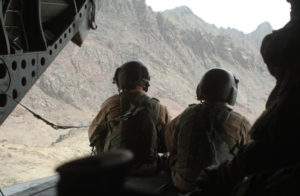
You need to be a supporter to comment.
There are currently no responses to this article.
Be the first to respond.